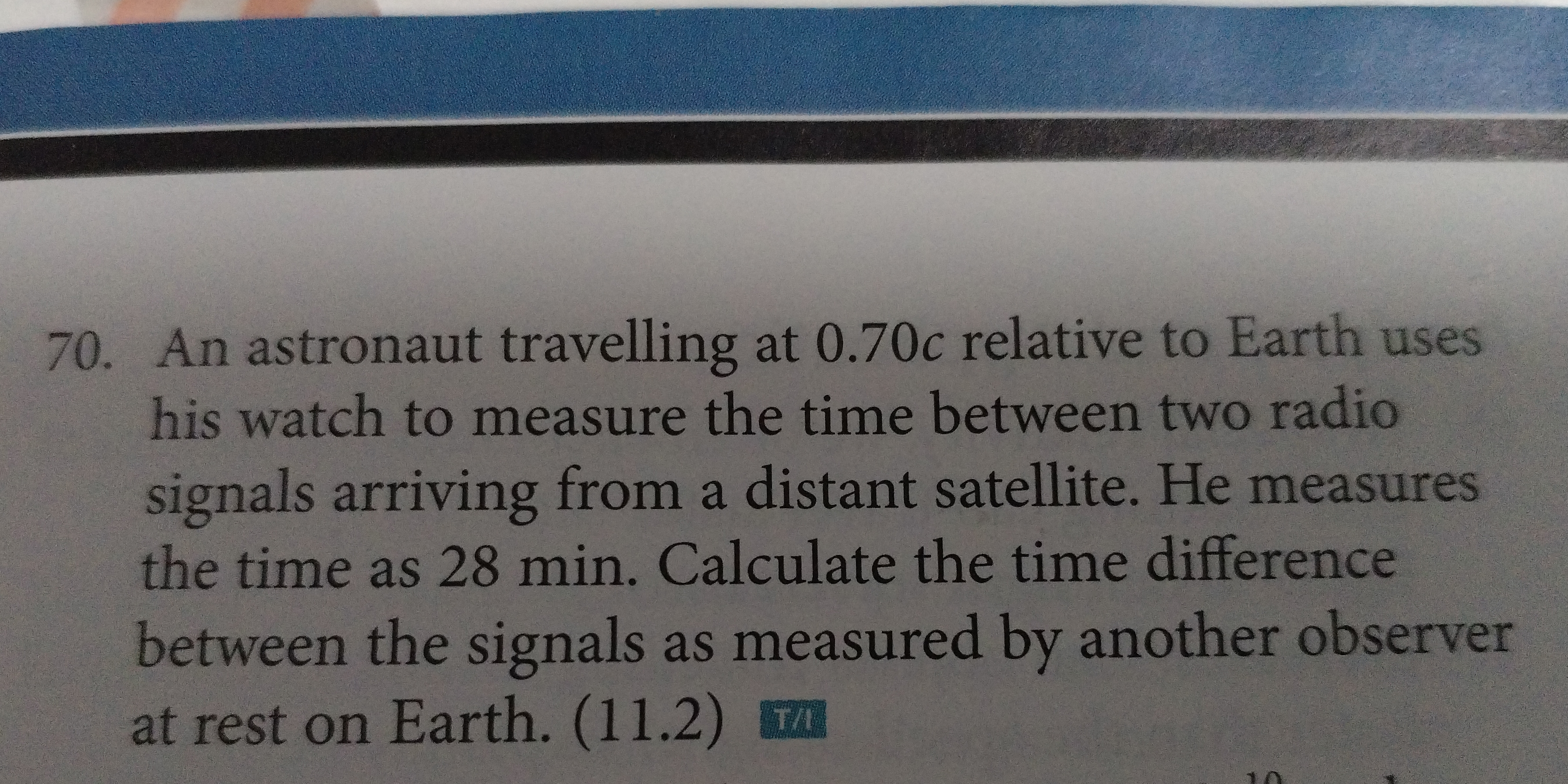An astronaut travelling at 0.70c relative to Earth uses his watch to measure the time between two radio signals arriving from a distant satellite. He measures the time as 28 min. C... An astronaut travelling at 0.70c relative to Earth uses his watch to measure the time between two radio signals arriving from a distant satellite. He measures the time as 28 min. Calculate the time difference between the signals as measured by another observer at rest on Earth.

Understand the Problem
The question is asking to calculate the time difference between two radio signals as measured by an observer on Earth, given that an astronaut traveling at 0.70c measures the time as 28 minutes. This involves using principles of relativity.
Answer
The time difference is approximately $11.2$ minutes.
Answer for screen readers
The time difference between the signals as measured by the observer at rest on Earth is approximately $11.2$ minutes.
Steps to Solve
-
Identify the time measured by the astronaut The astronaut measures the time between the two radio signals as $t' = 28$ minutes.
-
Understand the time dilation formula In special relativity, the time dilation can be calculated with the formula: $$ t = \frac{t'}{\sqrt{1 - \frac{v^2}{c^2}}} $$ where
- $t$ is the time measured by an observer at rest (on Earth),
- $t'$ is the time measured by the moving observer (the astronaut),
- $v$ is the velocity of the moving observer,
- $c$ is the speed of light.
-
Substitute the given values Here, the velocity of the astronaut $v = 0.70c$ and $t' = 28$ minutes. We first calculate the denominator: $$ \sqrt{1 - \frac{(0.70c)^2}{c^2}} = \sqrt{1 - 0.49} = \sqrt{0.51} $$
-
Calculate the time measured by the Earth observer Now, substituting the values into the time dilation formula: $$ t = \frac{28 , \text{min}}{\sqrt{0.51}} $$
-
Find final numerical value Now compute the value of $t$: $$ t = \frac{28}{\sqrt{0.51}} \approx \frac{28}{0.714} \approx 39.2 , \text{min} $$
-
Calculate the time difference To find the time difference between the signals as measured on Earth, we need to subtract the astronaut's time from the Earth observer's time: $$ \Delta t = t - t' = 39.2 , \text{min} - 28 , \text{min} \approx 11.2 , \text{min} $$
The time difference between the signals as measured by the observer at rest on Earth is approximately $11.2$ minutes.
More Information
This problem involves understanding the principles of time dilation from Einstein's theory of relativity. The speed of light being constant leads to different time measurements between observers in relative motion.
Tips
- Ignoring units: Make sure to keep track of units throughout the calculations.
- Misapplying the formula: It's crucial to apply the time dilation formula correctly. Ensure all variables (like velocity) are accurately represented.
AI-generated content may contain errors. Please verify critical information